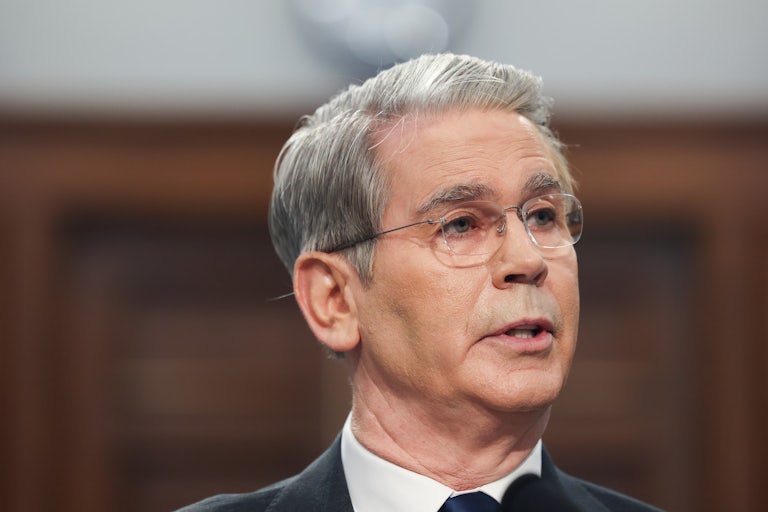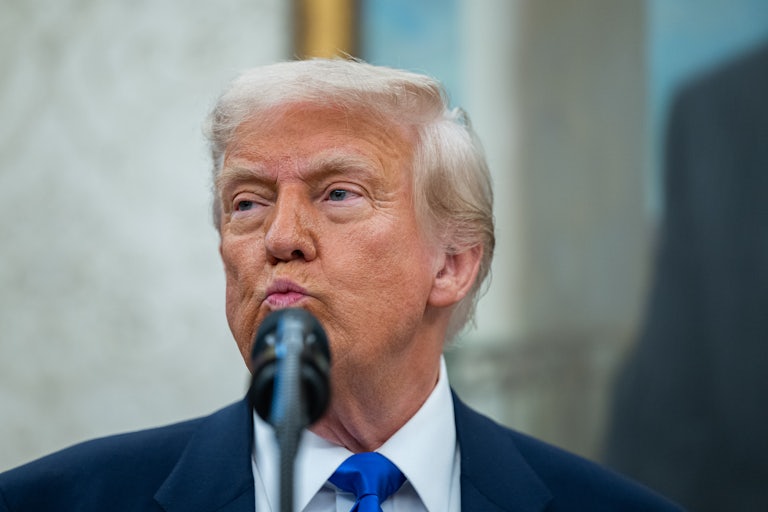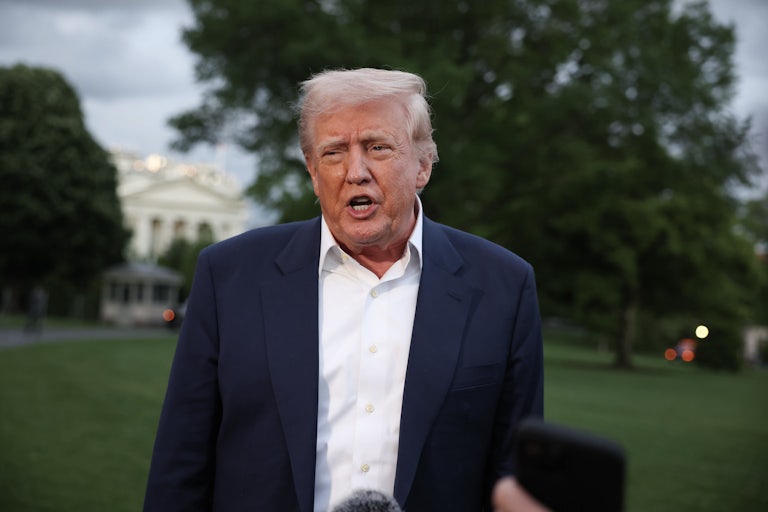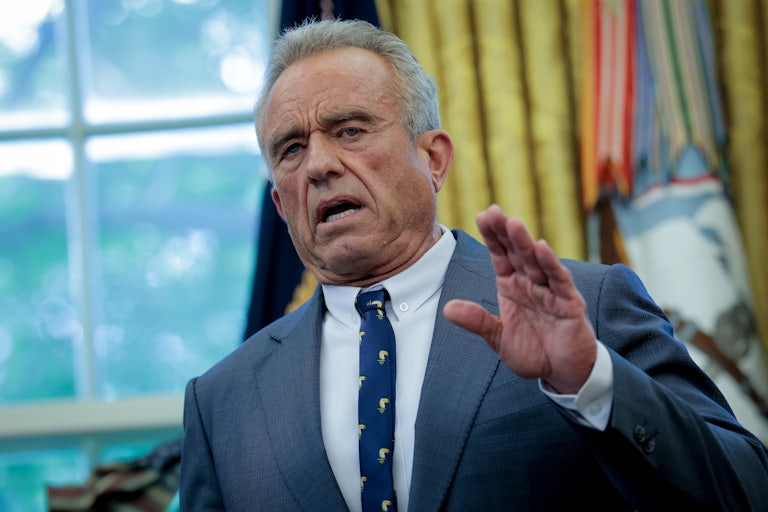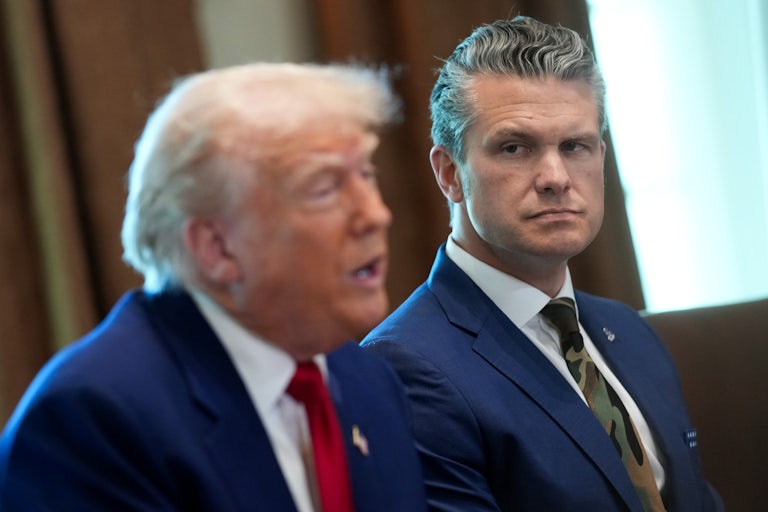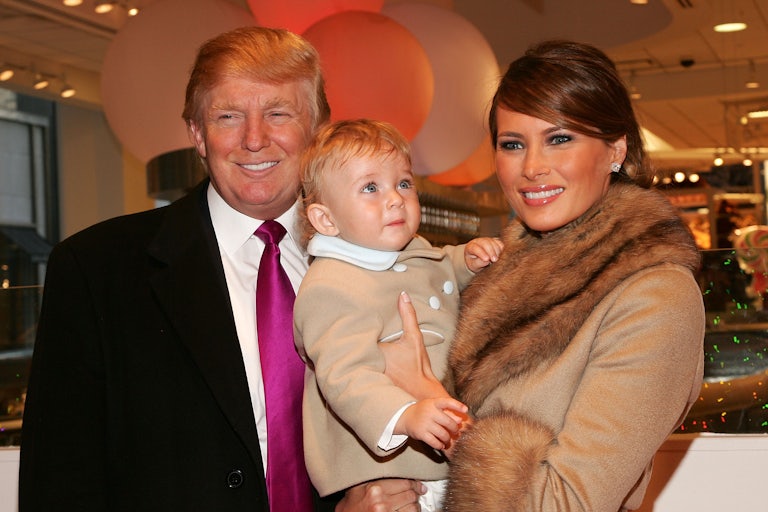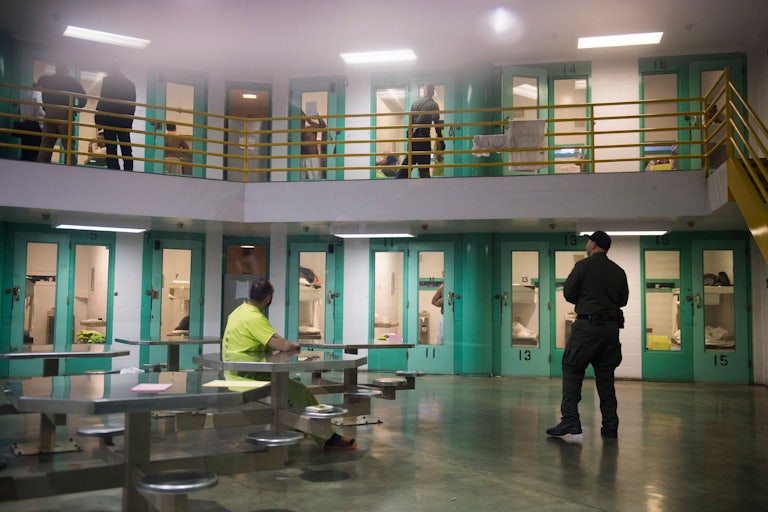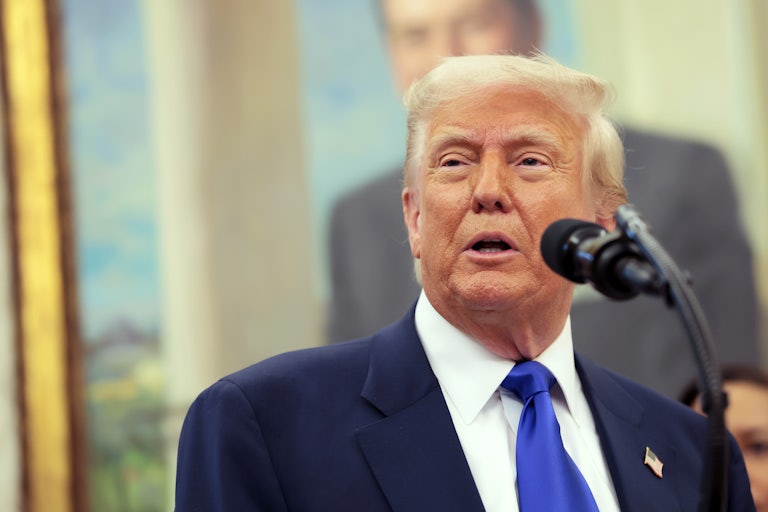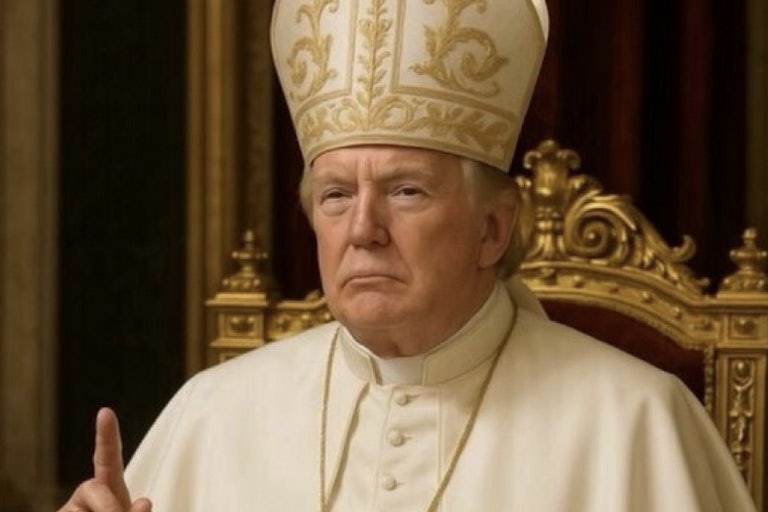Trump’s Law Firm Deals Aren’t Working Out How He Hoped
Law firms that caved to Donald Trump are revealing they have ways to wriggle out of the deals.
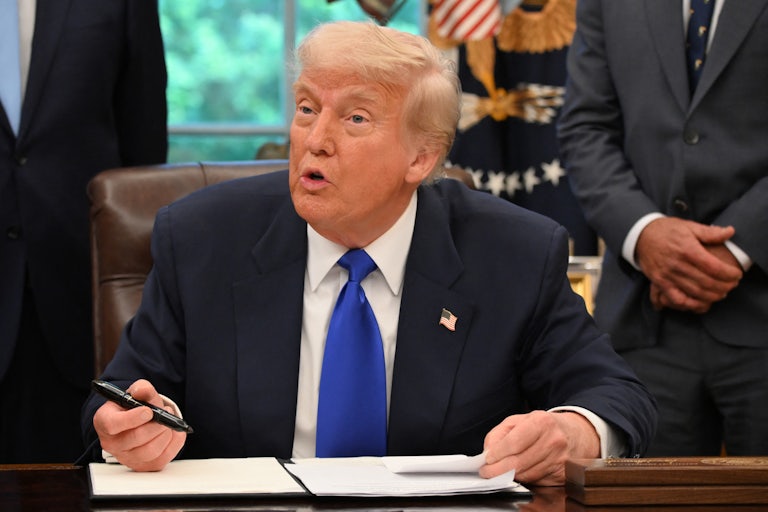
President Donald Trump may have thought he was getting a legal war chest by threatening several major law firms—but it seems the famed dealmaker didn’t know exactly what he was signing on to.
In a series of letters to Representative Jamie Raskin and Senator Richard Blumenthal obtained by The Bulwark, several major law firms that cut deals with the Trump administration provided details on the terms of their agreements—and it’s looking like the president may have gotten the short end of the stick.
While the firms had reportedly agreed to provide millions of dollars of pro bono work for specific causes, many asserted that they had total authority over the selection of their clients.
Allen Overy Shearman Sterling LLP wrote that its agreement to provide $125 million in pro bono work “does not call for, or permit, the administration or any other person or entity to determine what clients and matters the Firm takes on, whether they be pro bono matters or otherwise.” The firm said it had simply agreed to provide free legal services across “three specified areas,” including assisting veterans, ensuring fairness in the justice system, and combating antisemitism.
The Bulwark reported that other firms’ deals had similar stakes. Latham & Watkins wrote that it “maintains its complete independence as to the clients and matters the firm takes on,” while Simpson Thacher & Bartlett wrote that their agreement with the government did not “dictate or restrict what pro bono matters we will take on moving forward.” Cadwalader, Wickersham & Taft wrote that they “have not and will not restrict our pro bono activities or the positions we take on behalf of those clients.”
Nine law firms have signed deals with the president, promising nearly $1 billion in pro bono work.
Meanwhile, Trump has projected a far grander view of what he could call on firms to do for him. The president claimed that the major law firms who struck deals stood at the ready to help him make deals with foreign countries to alleviate the weight of his sweeping reciprocal tariffs. He also floated the idea of using his battalion of attorneys to help the coal industry. In the White House, discussions had begun about deploying lawyers at DOGE and the DOJ, The New York Times reported last month.
Other firms seem to be using a different legalese to prevent themselves from being strong-armed by Trump. Skadden, Arps, Slate, Meagher & Flom LLP executive partner Jeremy London said that the firm had agreed to provide $100 million in pro bono work that “the president and Skadden both support,” which could potentially provide an out should the firm be remanded to work on a specific cause.
Last month, Raskin and Blumenthal penned letters to five major law firms they accused of being “complicit in efforts to undermine the rule of law” and demanded information on the deals.
A group of Democratic lawmakers sent another series of letters to law firms last month, warning that the Trump administration’s scheme to use “coercive and illegal measures” to blackmail firms could potentially violate federal laws against bribery, defrauding the public, and even racketeering.
If the firms have truly maintained authority over selecting which clients they represent, and which matters they take up, then some of these concerns may be moot. However, the lawmakers raised the possibility that by signing a deal with Trump, the firms were opening themselves up to extortion, asking what each firm planned to do to “ensure that the administration will not be able to require more from the firm beyond the provisions currently in place?”
